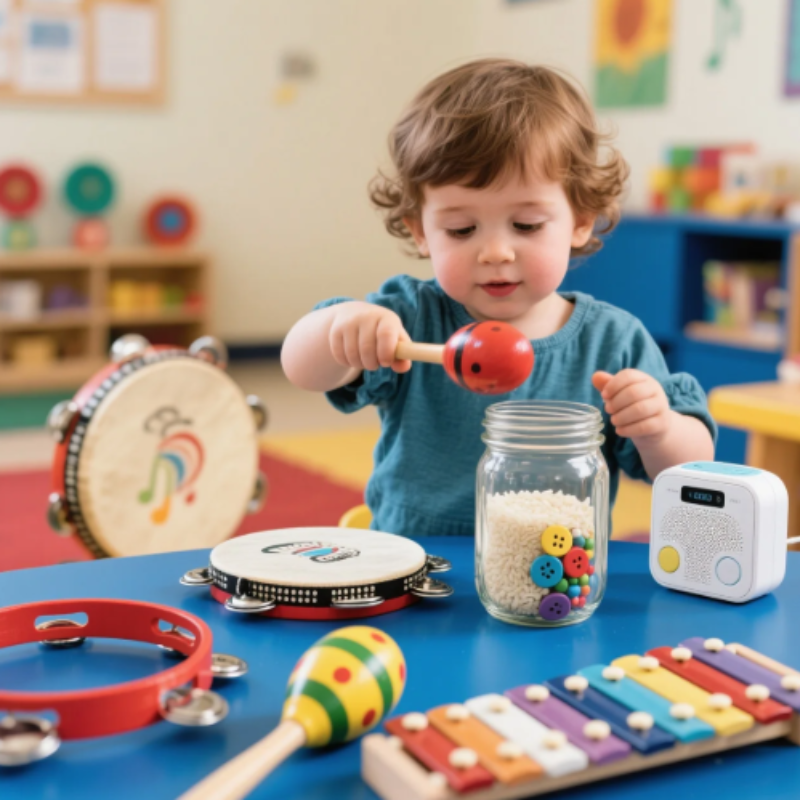Once upon a time, your child looked up at you with wide eyes and hung on your every word. Now? They roll those eyes, challenge your rules, and respond with sass that could rival a teen drama character.
If you’re thinking, “Why is my 12-year-old talking back so much lately?” — take a deep breath. This isn’t just you. It’s a common, frustrating, and yes, totally normal part of growing up.
Let’s decode the backtalk and explore how to respond with more confidence and less chaos.
🎭 What’s Actually Behind the Backtalk?
1. They’re Discovering Their Voice
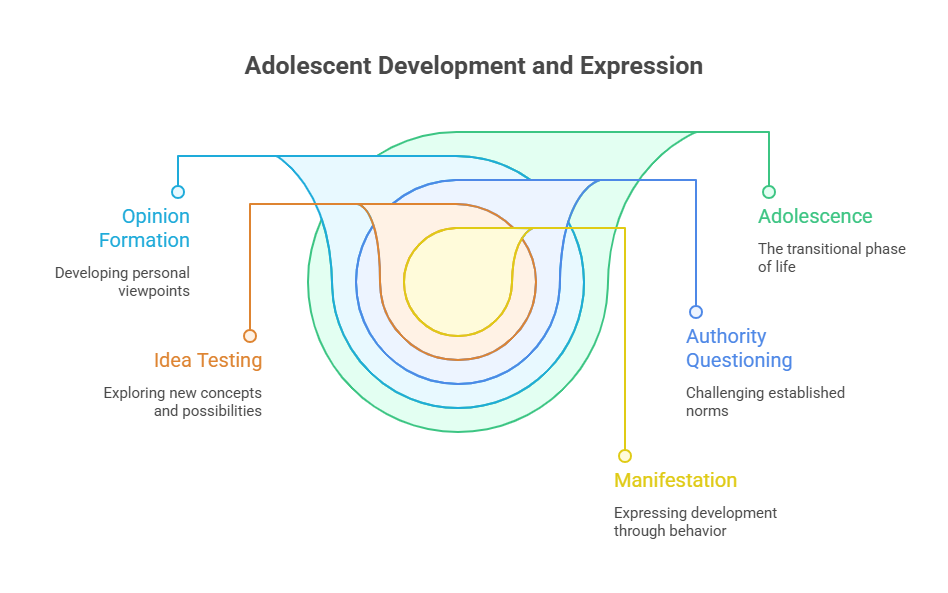
At 12, your child is straddling the line between childhood and adolescence. They’re starting to form their own opinions, question authority, and test ideas. Sometimes that discovery comes out as sarcasm, attitude, or arguments.
🗣️ Translation: “I want to be heard—even if I say it the wrong way.”
2. Hormones Have Entered the Chat
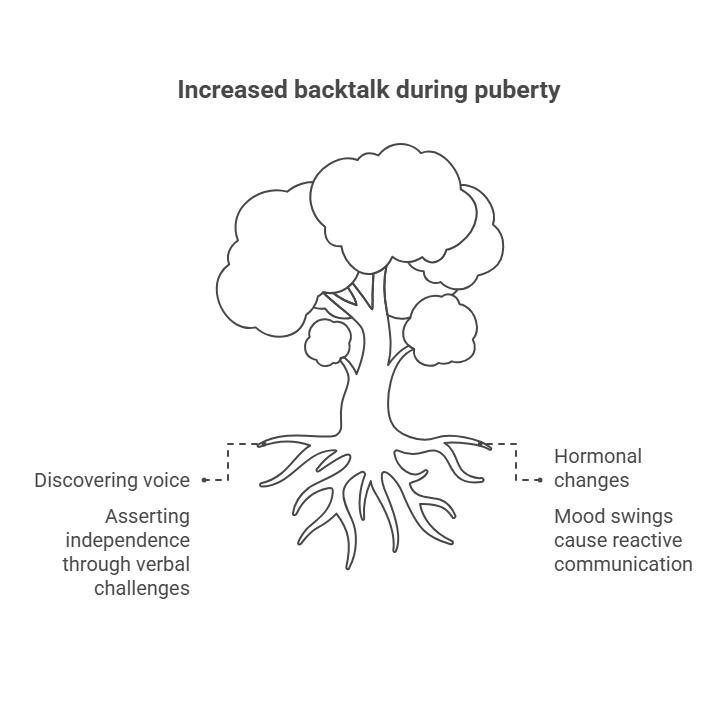
Puberty brings emotional turbulence, mood swings, and a very low tolerance for anything that feels controlling. Backtalk can be a knee-jerk reaction to feeling overwhelmed or misunderstood.
😤 Translation: “Everything feels intense, and I don’t know how to regulate it yet.”
3. They’re Craving Independence
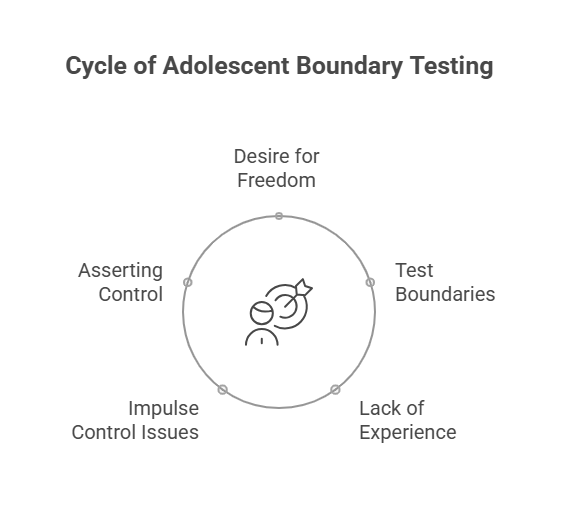
Your 12-year-old is hardwired to push boundaries. They want more freedom, but don’t yet have the life experience or impulse control to handle it smoothly. Talking back is one way they test where the limits are—and who’s in charge.
🚪Translation: “I want space, but I still need you.”
4. Peer Influence Is Real
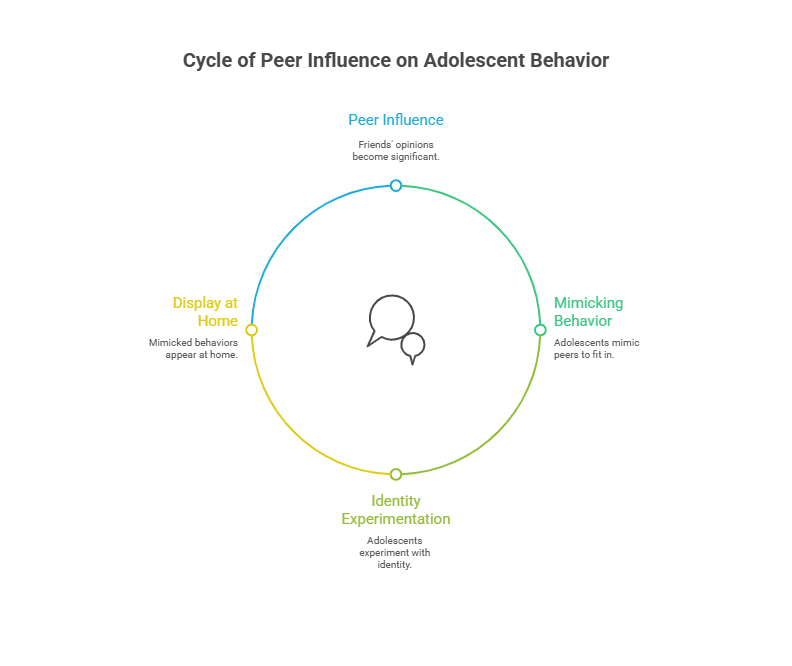
At this age, friends’ opinions start to matter a lot. If backtalk or sarcasm is common in their social circle or favorite shows, don’t be surprised when it shows up at home. Mimicking peers is their way of fitting in and experimenting with identity.
👯 Translation: “I’m trying out what it means to be ‘cool.’”
5. They’re Trying to Assert Control
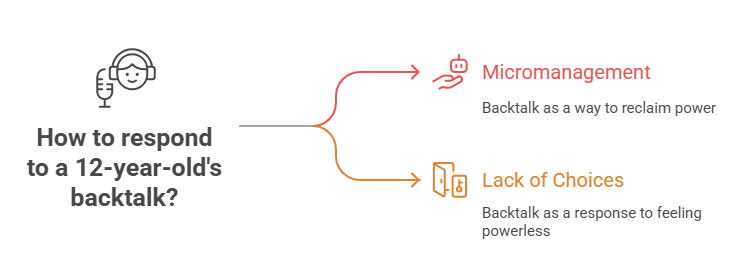
If your 12-year-old feels like they’re being micromanaged or not given choices, they may talk back as a way to reclaim some power—even if it means picking a fight.
🛑 Translation: “I feel powerless, and this is how I push back.”
🙋♀️ What You Can Do Instead of Yelling or Shutting Them Down
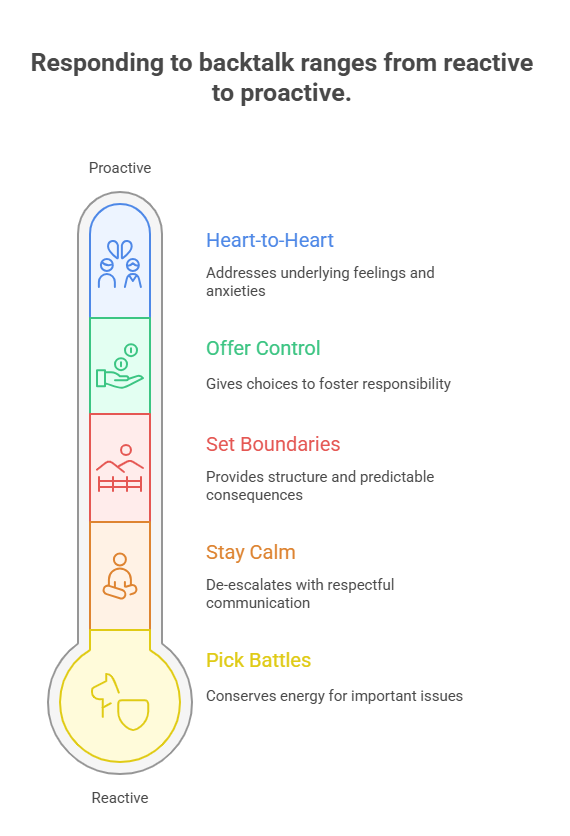
✅ Pick Your Battles
Not every sarcastic comment deserves a lecture. Save your energy for moments that truly matter—like safety, respect, and kindness.
🧘 Stay Calm, Always
When you respond to backtalk with anger, it escalates. Respond with calm, clear firmness:
“I understand you’re upset, but we speak respectfully in this house.”
🎯 Set Clear, Consistent Boundaries
Kids feel safer with structure. Let them know what’s okay—and what’s not—with consequences that are fair and predictable.
🤝 Offer More Control Where Appropriate
Give them small wins:
- “Would you rather do your homework before dinner or after?”
- “You can pick which chore you do this weekend.”
🗨️ Have a Heart-to-Heart (When Things Are Calm)
Ask, “Is something bothering you lately?” or “You’ve seemed frustrated—want to talk about it?”
Sometimes, the backtalk is a cover for anxiety, school stress, or deeper feelings they haven’t figured out how to share.
💡 Final Thought: Backtalk Is Loud, But It’s Not the Whole Story
Behind the sass is a kid who’s changing fast, trying to find their place, and still learning how to express themselves. Yes, they’re testing you—but they’re also depending on you more than ever to stay steady, loving, and firm.
You don’t have to “fix” every backtalk moment—but you can teach them how to speak up with respect, and show them what it means to be heard and held accountable.
And remember: the eye-rolls and sighs? Temporary. But your calm, consistent parenting? That sticks.




